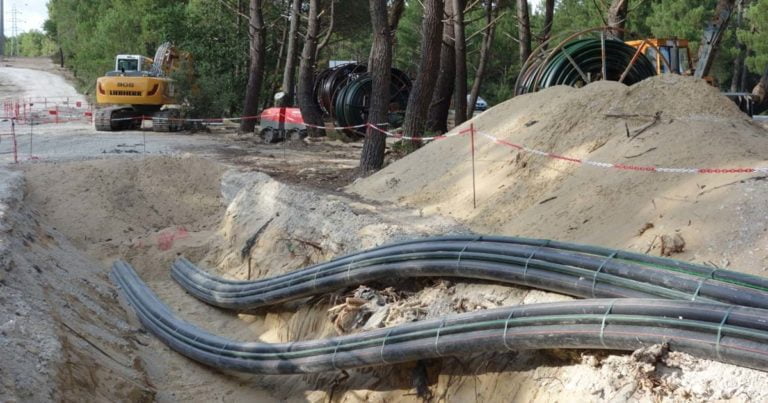The enormous electricity grid development and maintenance campaign launched by RTE since its creation in 2006 has generated today’s dynamic overhead HT line undergrounding market. RTE (Réseau de Transport d’Electricité – Electricity Transport Grid), a subsidiary of EDF, has undertaken to install at least 30% of the new electricity lines underground and increase the national roll out of this development method. Between 800 and 1000 km of underground network are slated to be installed by 2020.
Laid using HDPE conduit in open ground:
HDPE protective conduit is used for the undergrounding operations that are predominantly located in rural areas whereby each cable is paid out into an HDPE conduit, which cuts down on the open trench time. The trench and conduit are then backfilled with earth to ensure there is a uniform thermal environment around the link.
RYB’s 50 years of expertise and know-how have enabled us to win the market position we enjoy today by developing a comprehensive range of protective electric and fibre-optic cable conduit.
RYB Flexenergy conduit meets all the technical specifications defined by the RTE and all the products and packaging forms we offer are ideally suited to our customers’ implementation requirements such open trench laying and mechanical laying using trenching machines.
The advantages HDPE offers such as its availability in long lengths, its lightness, its ease of installation and its flexibility, allow companies to complete projects that are tens of kilometres long in record time.
More often than not, the pipes are laid in the form of a multi-pipe cluster at the bottom of an open trench before it is backfilled.
Our range covers DN75 to DN280 in the following packaging forms:
- Coils
- Smooth lengths
- Easylock mechanical push-fit lengths
- Drums
We deliver to grid-concealment undergrounding sites on almost every day of the year.
GO
